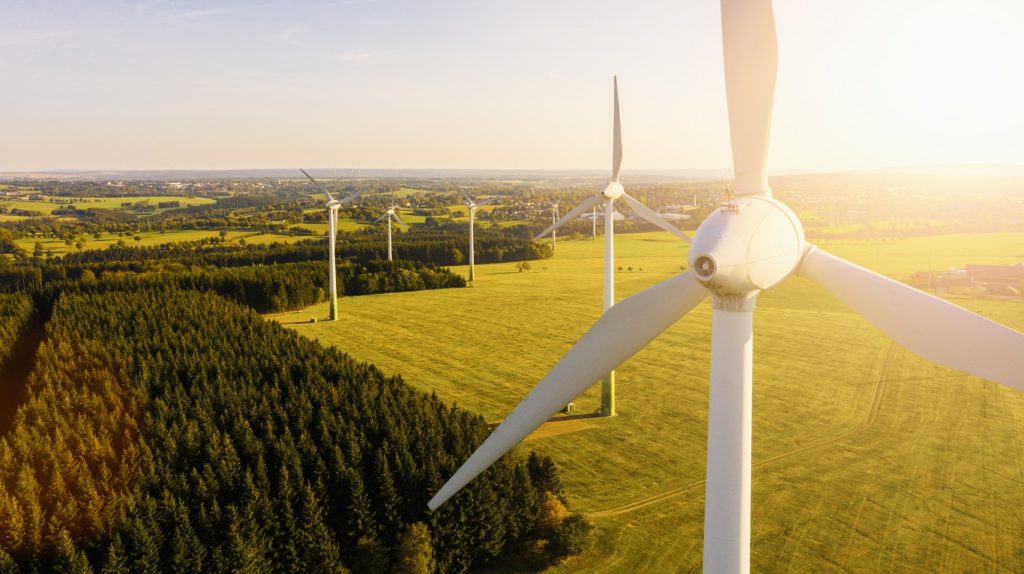Energy and Climate Policy Advisory Committee

Clean Energy Fund Review and Recommendations
Final Report on Clean Energy Fund Recommendations
Pursuant to a proviso in section 23 of the Clean Energy Transformation Act, the Department of Commerce convened the Energy and Climate Policy Advisory Committee.
What was the charge of the Energy and Climate Policy Advisory Committee?
The Energy and Climate Policy Advisory Committee was created “to develop recommendations to the legislature for the coordination of existing resources, or the establishment of new ones, for the purposes of examining the costs and benefits of energy-related policies, programs, functions, activities, and incentives.” SB 5116 sec. 23
The work of the committee focused on reviewing the historical structure and outcomes of the Department of Commerce Clean Energy Fund (CEF) programs and developing recommendations for adjustments to the programs. The final report identified CEF investments that can best help Washington meet its clean electricity and greenhouse gas reduction goals and contribute to rebuilding our state’s economy. Successful approaches will enhance equity, innovation, economic growth, and job creation, including putting the state at the forefront of the clean energy economy.
What was the schedule for the Energy and Climate Policy Advisory Committee’s efforts?
The Clean Energy Transformation Act (CETA) proviso directed Commerce to submit the ECPAC’s recommendations in a report to the Legislature by Dec. 31, 2020. ECPAC members and non-member stakeholders met in six interim sessions with a combined total of 29 individuals representing 26 organizations. These stakeholder sessions provided a forum for a focused discussion of the three primary CEF program areas and related investments: Grants to Non-profit Lenders, Research, Development, and Demonstration, and Grid Modernization (including the Solar Deployment and Electrification of Transportation Systems programs). Summaries of the stakeholder sessions and a list of participants can be found here:
- Clean Energy Infrastructure – Summary of Stakeholder Sessions (pdf)
- Clean Energy Innovation – Summary of Stakeholder Sessions (pdf)
- Clean Energy Lending – Summary of Stakeholder Sessions (pdf)
The full committee itself met four times between June and September 2020, learning about past uses of the CEF and considering ideas to strategically expand or adjust the CEF programs – including the ideas coming out of the stakeholder sessions. The resulting Findings and Recommendations from ECPAC were incorporated into a comprehensive report submitted to the Legislature by the Department of Commerce.
Who served on the Energy and Climate Policy Advisory Committee?
At a minimum, the Legislature directed that the committee include representatives of each of the state’s public four-year institutions of higher education, the Pacific Northwest National Laboratory, and the Washington state institute for public policy.
Members included:
Angela Becker-Dippman, Pacific Northwest National Laboratory
Elvin Delgado, Central Washington University
Tom Karier, Eastern Washington University
Scott Morgan, Evergreen State College
Dan Schwartz, University of Washington
Joel Swisher, Western Washington University
Michael Wolcott, Washington State University
Mel Clark, CleanTech Alliance (ex officio)
How did this work fit in with the development of the 2021 State Energy Strategy?
Parallel with the work of the Energy and Climate Policy Advisory Committee, the Department of Commerce lead an effort to develop the 2021 State Energy Strategy. The strategy was crafted with wide input and a technical foundation. The strategy lays out recommendations to align the state’s policies and actions with the updated greenhouse gas reduction targets and the requirements of the state’s 100% clean electricity laws while rebuilding Washington’s economy.
Commerce took steps to coordinate the work of the Energy and Climate Policy Advisory Committee with the strategy development process. Both were on the same timeline, and integration of the two efforts was a practical way to leverage resources.
How were interested stakeholders involved with the work of the Energy and Climate Policy Advisory Committee?
Meetings of the Energy and Climate Policy Advisory Committee and associated stakeholder sessions served as a forum to gather input and insight from a range of perspectives. This assisted the committee members, Commerce and the Legislature in understanding implementation issues across sectors and interests. A copy of the final recommendations can be found here.
Resources
- Final Report on Clean Energy Fund Recommendations (pdf)
- Energy and Climate Policy Advisory Committee Background Document (pdf)
- The Clean Energy Fund (link)
- The Clean Energy Transformation Act (link)
Need Help?
Kate Kelly
Senior Energy Policy Specialist
Energy Division
kate.kelly@commerce.wa.gov
Phone: (360) 628-6846
